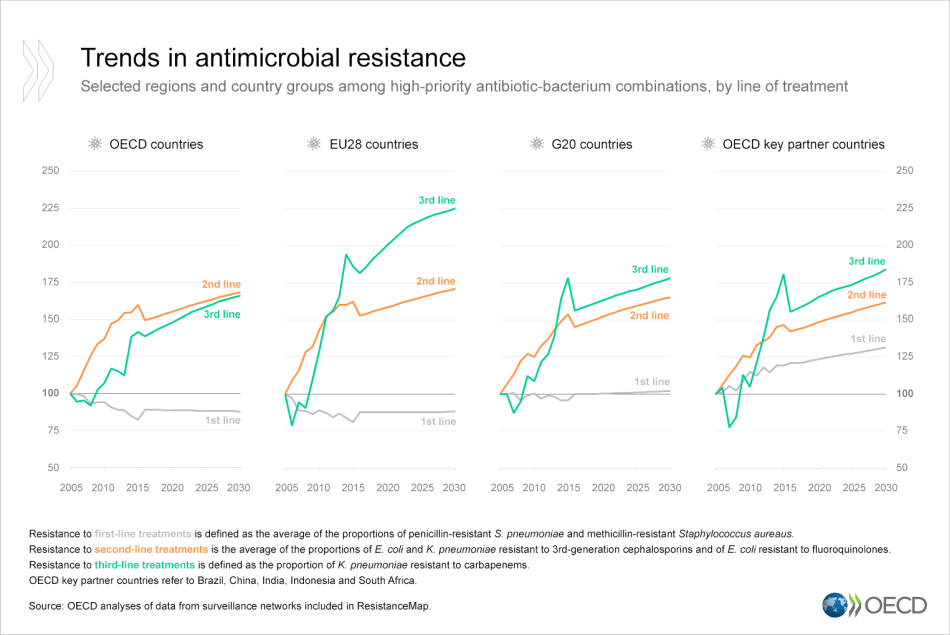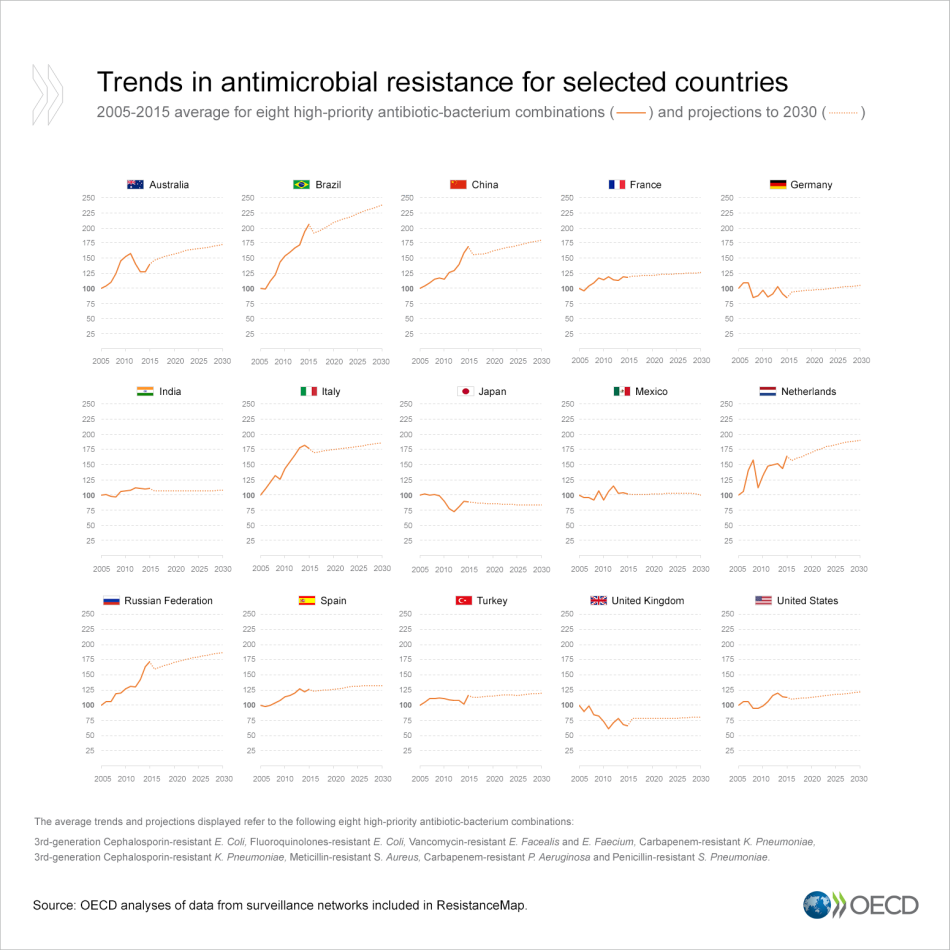Santé

Stemming the Superbug Tide
Just A Few Dollars More
Antimicrobial resistance (AMR) is a large and growing problem with the potential for
enormous health and economic consequences, globally. As such, AMR has become a central
issue at the top of the public health agenda of OECD countries and beyond. In this
report, OECD used advanced techniques, including machine learning, ensemble modelling
and a microsimulation model, to provide support for policy action in the human health
sector. AMR rates are high and are projected to grow further, particularly for second-
and third-line antibiotics, and if no effective action is taken this is forecasted
to produce a significant health and economic burden in OECD and EU28 countries. This
burden can be addressed by implementing effective public health initiatives. This
report reviews policies currently in place in high-income countries and identifies
a set of ‘best buys’ to tackle AMR that, if scaled up at the national level, would
provide an affordable and cost-effective instrument in the fight against AMR.
Published on November 07, 2018
In series:OECD Health Policy Studiesview more titles
TABLE OF CONTENTS
| Foreword | |
| Acronyms and abbreviations | |
| Executive summary | |
| Antimicrobial resistance: A large and growing problem | |
| Antimicrobial resistance: A frightening and complex public health challenge | |
| Trends in antimicrobial resistance in OECD countries | |
| Health and economic burden of antimicrobial resistance | |
| Policies to combat antimicrobial resistance | |
| Cost-effectiveness of antimicrobial resistance control policies |
Powered by OECD iLibrary


 Follow us on Twitter via
Follow us on Twitter via